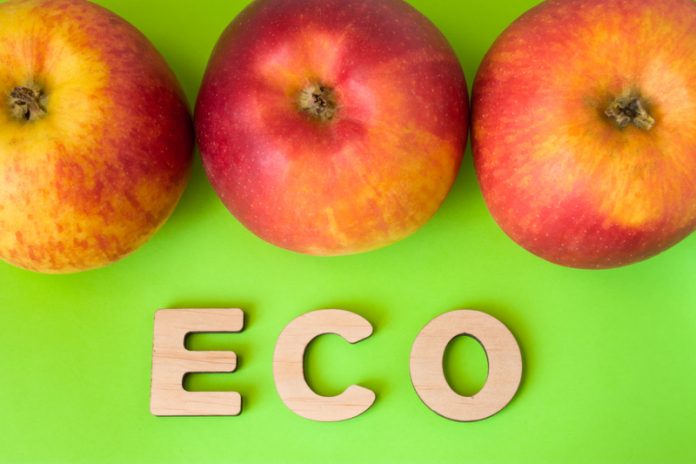Using expert guidance, here, the importance of sustainable eating for the environment and our health and how to effectively carry out a sustainable lifestyle is highlighted
The World Wildlife Fund (WWF) calculated that if the world’s population consumed natural resources at the rate of the UK, we would need three planets to support us. (1) One significant contributor to this shocking statistic is the pressures of the global food system, which increasingly highlights the importance of sustainable eating – a diet defined by positive impact on environmental, economic and social well-being.
While there is a lot to show for sustainable eating’s effect on the world, how exactly does it affect our health? It seems that the two go hand in hand, with a mindful approach to the way we source our food working side by side with a nutritious diet. Using expert guidance from Leisure Cooker’s Guide to Sustainable Cooking, here’s how to look out for mother nature, whilst simultaneously looking after our health.
Go local
Whether it’s meat, fish, dairy, fruit, or vegetables, purchasing directly from local butchers and farm shops is a great way to eat sustainably. Not only does it encourage local food production and boost the economy, but it reduces your carbon footprint as the food you’re buying won’t have travelled hundreds or thousands of miles. Local food shops and farmers markets usually operate on a much smaller scale than supermarket chains, meaning lower impact and less waste, too. The health benefits of going local include fruit and veg that is at its freshest – meaning that they’re likely still packed with nutrients when they land on your plate.
Eat things that are in season
Eating with the seasons means your fruit and veg can be grown locally and so has a lower carbon footprint than out of season foods that have to be imported. If you find you can’t be without non-UK fruit from sunnier climates, check the country of origin, investigate and choose companies that import via road and sea. According to the Foodie Guide to Sustainable Cooking, “air freight causes 40-50 times the CO2 emissions of transporting fruit and veg by sea”.
Not only is being mindful of your food’s seasonality and carbon footprint more sustainable, but it’s also a great way to maintain a diverse diet year-round. This way, you know you’ll be getting produce that’s at its best throughout the year and that the food you eat is as fresh as can be. If you’re shopping for fresh, seasonal produce, here are a few things to look for:
- Colour vibrancy: is the fruit or veg the bright colour you would expect? If it’s dull, pale or just doesn’t look quite as appetising, it may have travelled a long distance to get to you.
- Hydration levels: leaves should be crisp and skin surfaces of fruit smooth and unwrinkled.
- Scent: not everything has a strong smell when raw, but fruits like melons and pineapples will always have the strongest smell when they are at their freshest.
Variety is key
When it comes to fish, the Marine Stewardship Council (MSC) states that “with over sixty species of seafood in Scotland’s waters, there are quite a few that are underrated and underappreciated.” They go on to suggest that for a great white fish alternative we should be trying less well-known fish such as hake or saithe and, for flatfish, megrim. Trying new species and exploring alternatives is a great way to take pressure off more popular species, e.g. cod and haddock, while also getting to try new, delicious and nutritious choices. According to research, we should be eating fish twice a week, too, due to its lean, healthy source of protein – with the oily kinds having brain-healthy fats like omega-3. (2)
Quality over quantity
If you are a meat eater, try to look for quality over quantity. If you shop directly from butchers and farm shops, and for locally produced meat when you can, you’ll be helping to support local businesses. It also means you’ll be eating tastier meat of higher quality as smaller farms usually have more time to devote to raising their livestock. According to the Department of Health, meat intake should not be in excess of 70g, so this lifestyle shift could reduce your risk of raised blood cholesterol levels, cancer and heart disease. (3)
Our responsibility to the planet and what we can do to improve it is an ever-important topic facing us today. But with evidence that our health is also affected by our ability to eat sustainably, it seems there are more reasons than one for us to make a collective effort for change. From shopping for local, seasonal produce to choosing higher quality meat, these are just some of the minor ways we can make a major difference to our home and our health.
(1) https://www.nutrition.org.uk/nutritionscience/sustainability/sustainability.html
(2) https://www.webmd.com/heart/news/20180517/eat-fish-twice-a-week-to-ward-off-heart-disease#1












PLANTS HAVE ALL NEEDED NUTRIENTS, TAKE ONLY 1/3 OF WATER AND LAND. ARE PEOPLE APEX PREDATORS? VARIOUS HUMAN HERBIVORE CULTURES DISPROVE THIS FALLACY, IT IS A OFTEN MATTER OF NURTURE. PREDATORS BEHAVE DIFFERENT FROM HERBIVORES. There are MANY CHEMICALS IN ANIMAL TISSUE: NOT ONLY NUTRITION BUT ALSO DRUGS LIKE FEAR IN COW ADRENALINE, PECKING ORDER IN CHICKEN. UN AND WEF CALL FOR A ‘NEW SOCIAL CONTRACT’ TO AVERT BIOSPHERE AND ECONOMIC COLLAPSE. TIME TO REIGN IN THE CUSTOMER KING AND TEACH THAT EXISTENCE DEPENDS ALSO ON COMMUNITY. MANY HABITS HAVE BEEN BANNED TO BUILD COMMUNITY, SUCH AS DUELS, MARRYING RELATIVES, THEFT, DRUNK DRIVING. TIME FOR NEW RULES: AHIMSA LAWS. DON’T BUY THE ‘TOO MANY PEOPLE’ ANGLE, IT IS WRONG RESOURCE USE. CHARGE CONSUMERS USER PAY FOR FOOTPRINT.